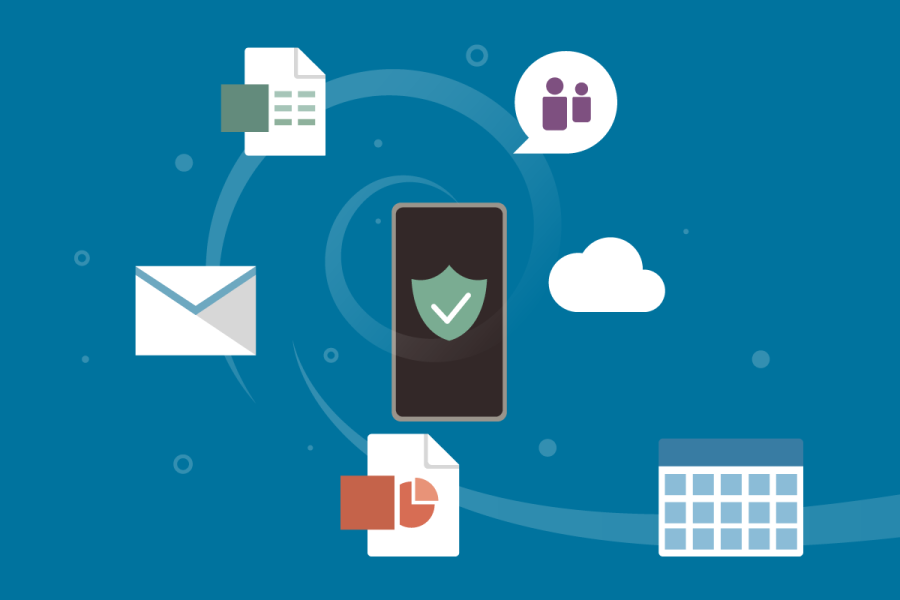Traveling Soon? Be on the Lookout for Scams that Target Travelers

Traveling can be exciting and fun when exploring new places or enjoying your favorite getaway. However, staying safe from travel scams and phishing is important even when you're on the go.
Travel planning: Scams to avoid
The U.S. Federal Trade Commission (FTC) posts important details on avoiding travel scams. Current common travel scams include "free" vacations, robocalls about vacation deals, international travel document scams and driving permit scams, vacation home scams, and charter flight scams.
The FTC’s main advice is:
- Don’t sign or pay until you investigate the deal; be especially cautious if you’re being rushed.
- Look up and verify the details of any person or "company" offering a deal.
- Don't pay with wire transfers, gift cards, or cryptocurrency.
Avoiding phishing scams while on the go
Some phishing attempts specifically target travelers and travel planning activities. Remember: Phishing is when someone tries to trick you into giving them sensitive information (like your passwords or credit card numbers) by pretending to be someone you trust (like a bank or travel company).
Here are some tips for staying safe from phishing scams while traveling (and any time):
-
Be cautious of public Wi-Fi networks, workstations, and charging stations.
Public Wi-Fi networks can be convenient when you're traveling, but they can also be dangerous. Hackers create legitimate-appearing, fake WiFi networks to steal your information. If you need to use public Wi-Fi, only connect to password-protected networks provided by a reputable company, like a hotel or café. And even then, use extra caution like connecting to Stanford's remote access virtual private network (VPN) before accessing sensitive accounts.
And especially if traveling internationally, avoid using public computer workstations and charging stations. Assume that anything that you enter into such a system might be captured and used.
-
Don't click on links from unverified sources.
Phishing scams often involve links that look like they're from a legitimate company, but actually take you to a fake website designed to steal your information. Be wary of any email or text message asking you to click on a link. Check the sender's email address or phone number to ensure it's legitimate. If you're unsure, don't click on the link or take any requested action.
-
Use two-factor authentication.
Two-factor authentication isn’t just a must-have for your Stanford accounts—it’s a security feature you’ll want to turn on for other accounts that provide a two-step option. Many travel companies and financial institutions offer two-factor authentication, so make sure you enable it for any accounts you use while traveling. This will make it harder for hackers to access your information while you’re on-the-go.
-
Be wary of unexpected emails or phone calls.
If you receive an email or phone call that seems unexpected or suspicious, don't give out any information. Legitimate companies will never ask you for sensitive information like your password or credit card number over the phone or email. If you're unsure whether the call or email is legitimate, contact the company directly using a phone number or email address from their official website.
-
Keep your devices up-to-date, encrypted, and backed up.
Make sure the devices you take, like your phone and laptop, and leave at home are running the latest software updates and have the appropriate encryption and back-up solutions in place. These measures can protect you from phishing scams and other online threats while you’re away.
Stanford has additional important details on our Recommendations for International Travel page to protect you, your information, and the Stanford community.
The postcard version
Staying safe from phishing scams while traveling requires extra caution and awareness, but it's worth it to protect your sensitive information. Log these important travel tips so you can enjoy your travels with less worry.
Learn more
DISCLAIMER: UIT News is accurate on the publication date. We do not update information in past news items. We do make every effort to keep our service information pages up-to-date. Please search our service pages at uit.stanford.edu/search.
What to read next:

Important Changes to Slack Email Functionality

Migrate to Stanford GitLab's New Container Registry By March 27

